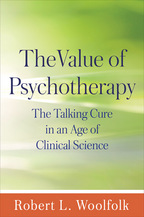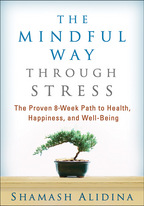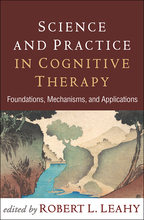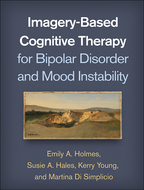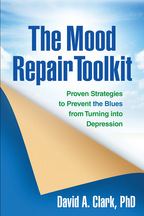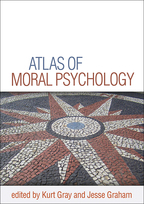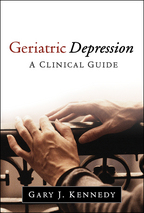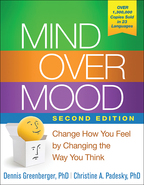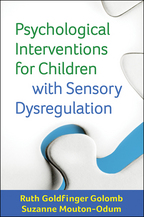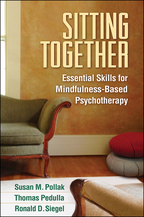The Value of Psychotherapy
The Talking Cure in an Age of Clinical Science
Robert L. Woolfolk
HardcoverPaperbacke-bookprint + e-book
Hardcover
orderAugust 3, 2015
ISBN 9781462521906
Price: $53.00 222 Pages
Size: 6" x 9"
Paperback
orderAugust 4, 2015
ISBN 9781462524594
Price: $35.00222 Pages
Size: 6" x 9"
“Woolfolk’s latest addition to the ongoing scholarly analysis of the contemporary psychotherapeutic scene comes as a most welcome breath of fresh air. Avoiding the extremes of critical dismissal and rapturous endorsement, Woolfolk offers a thoughtful analysis of not only the current conceptual and scientific state of the discipline but also a penetrating and insightful look at where it seems to be headed.”

—Journal of Theoretical and Philosophical Psychology
“The Value of Psychotherapy is…incisive and illuminating, playful and provocative.”

—PsycCRITIQUES
“Woolfolk has a triumph here. All psychotherapists—from the most experienced practitioners to fledgling apprentices—should read this book. It’s all about the therapeutic issues that no one ever tells you about, but you badly need to know.”

—Brent D. Slife, PhD, Department of Psychology, Brigham Young University
“Fascinating, provocative, and remarkably well written. Woolfolk's critique of some of the field's predominant conceptual, clinical, and scientific trends is destined to provoke sharp debates and foster new dialogues about how to practice and study psychotherapy. His elucidation of expertise and harmful effects sheds light on how psychosocial treatments work or fail to work. Also insightful is his depiction of psychotherapy as an enactment of humanism that respects the social context of human suffering and that has an impact on many aspects of life. This is a 'must read' for students, clinicians, and researchers who are willing to be challenged and inspired by a bold, daring, erudite, and ultimately optimistic perspective about the value and growth potential of psychotherapy.”

—Louis G. Castonguay, PhD, Liberal Arts Professor of Psychology, The Pennsylvania State University
“What a rare pleasure to read this book! In an age of medicalized, fragmented, 'alphabet soup' psychotherapies, Woolfolk issues a refreshing and passionate call for the field to take a broad, historical view and emphasize the 'human side' of therapy. This book should be required reading for all students of psychology to understand the breadth and depth of their calling.”

—Ilene A. Serlin, PhD, BC-DMT, Director, Union Street Health Associates, San Francisco
“Not since Bergin and Garfield's Handbook of Psychotherapy and Behavior Change and the Franks’ Persuasion and Healing has such an insider critical perspective on psychotherapy been presented. However, Woolfolk’s book transcends both of these landmark works, situating psychotherapy in the larger context of mental health care. Drawing from history and philosophy as well as psychological and clinical science, this book synthesizes an enormous literature with the author’s characteristic insight, clarity, and wit. I recommend it highly for novices and veterans alike.”

—John Z. Sadler, MD, Professor of Psychiatry and The Daniel W. Foster, MD, Professor of Medical Ethics, University of Texas Southwestern Medical Center
“Has psychotherapy lost its soul? To find out, read this book. Woolfolk’s formidable intellect and his impressive background in both psychology and philosophy are on full display in this outstanding, thought-provoking work, which is especially germane for graduate programs in clinical psychology. I will assign portions of it in my Issues on Clinical Psychology graduate course. As the director of a clinical science program, I find much in this book that our students need to be exposed to in order to fully understand what the therapeutic enterprise should be about and how it should be evaluated.”

—Ronald E. Smith, PhD, Professor and Director of Clinical Training, Department of Psychology, University of Washington, Seattle
“I enjoyed this book so much that I found it hard to put down. As a clinical psychologist in my 5th year of private practice, I have been struggling to work out what ‘type of therapy’ I should be utilizing to assist my clients, and have attended many professional development workshops promoting various therapeutic modalities. I have needed to read a book like this for some time to make sense of all of the noise.”

—Linda Kennedy, MPsych (Clin), private practice, Australia
“Woolfolk’s well-written text has never been more needed in order to understand the confusing world of theoretical approaches and psychotherapy research. The dramatic shift to a biological perspective and valuing science over art is discussed and evaluated in light of the current state of the field. This book is essential reading for students and novice practitioners who aspire to be effective clinicians—my students really enjoy it.”

—Valerie A. Hart, EdD, APRN-BC, Professor of Nursing, University of Southern Maine
—Journal of Theoretical and Philosophical Psychology
“The Value of Psychotherapy is…incisive and illuminating, playful and provocative.”
—PsycCRITIQUES
“Woolfolk has a triumph here. All psychotherapists—from the most experienced practitioners to fledgling apprentices—should read this book. It’s all about the therapeutic issues that no one ever tells you about, but you badly need to know.”
—Brent D. Slife, PhD, Department of Psychology, Brigham Young University
“Fascinating, provocative, and remarkably well written. Woolfolk's critique of some of the field's predominant conceptual, clinical, and scientific trends is destined to provoke sharp debates and foster new dialogues about how to practice and study psychotherapy. His elucidation of expertise and harmful effects sheds light on how psychosocial treatments work or fail to work. Also insightful is his depiction of psychotherapy as an enactment of humanism that respects the social context of human suffering and that has an impact on many aspects of life. This is a 'must read' for students, clinicians, and researchers who are willing to be challenged and inspired by a bold, daring, erudite, and ultimately optimistic perspective about the value and growth potential of psychotherapy.”
—Louis G. Castonguay, PhD, Liberal Arts Professor of Psychology, The Pennsylvania State University
“What a rare pleasure to read this book! In an age of medicalized, fragmented, 'alphabet soup' psychotherapies, Woolfolk issues a refreshing and passionate call for the field to take a broad, historical view and emphasize the 'human side' of therapy. This book should be required reading for all students of psychology to understand the breadth and depth of their calling.”
—Ilene A. Serlin, PhD, BC-DMT, Director, Union Street Health Associates, San Francisco
“Not since Bergin and Garfield's Handbook of Psychotherapy and Behavior Change and the Franks’ Persuasion and Healing has such an insider critical perspective on psychotherapy been presented. However, Woolfolk’s book transcends both of these landmark works, situating psychotherapy in the larger context of mental health care. Drawing from history and philosophy as well as psychological and clinical science, this book synthesizes an enormous literature with the author’s characteristic insight, clarity, and wit. I recommend it highly for novices and veterans alike.”
—John Z. Sadler, MD, Professor of Psychiatry and The Daniel W. Foster, MD, Professor of Medical Ethics, University of Texas Southwestern Medical Center
“Has psychotherapy lost its soul? To find out, read this book. Woolfolk’s formidable intellect and his impressive background in both psychology and philosophy are on full display in this outstanding, thought-provoking work, which is especially germane for graduate programs in clinical psychology. I will assign portions of it in my Issues on Clinical Psychology graduate course. As the director of a clinical science program, I find much in this book that our students need to be exposed to in order to fully understand what the therapeutic enterprise should be about and how it should be evaluated.”
—Ronald E. Smith, PhD, Professor and Director of Clinical Training, Department of Psychology, University of Washington, Seattle
“I enjoyed this book so much that I found it hard to put down. As a clinical psychologist in my 5th year of private practice, I have been struggling to work out what ‘type of therapy’ I should be utilizing to assist my clients, and have attended many professional development workshops promoting various therapeutic modalities. I have needed to read a book like this for some time to make sense of all of the noise.”
—Linda Kennedy, MPsych (Clin), private practice, Australia
“Woolfolk’s well-written text has never been more needed in order to understand the confusing world of theoretical approaches and psychotherapy research. The dramatic shift to a biological perspective and valuing science over art is discussed and evaluated in light of the current state of the field. This book is essential reading for students and novice practitioners who aspire to be effective clinicians—my students really enjoy it.”
—Valerie A. Hart, EdD, APRN-BC, Professor of Nursing, University of Southern Maine

